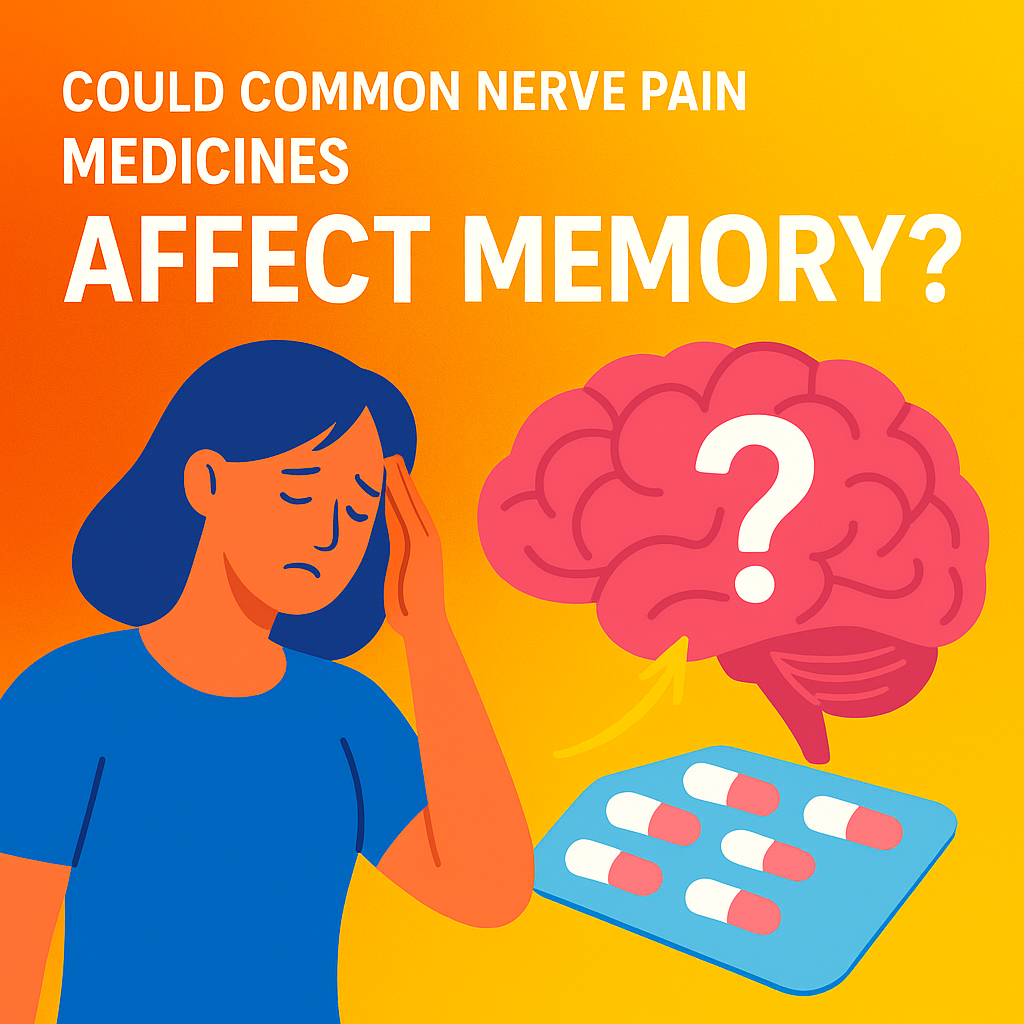A new large-scale study has sparked important conversations in the medical community: could medicines often prescribed for nerve pain have unexpected long-term effects on memory and thinking?
What Are These Medicines?
One of the most widely prescribed drugs in this category is Gabapentin. Doctors use it to treat:
-
Nerve-related pain such as sciatica, shingles, or diabetic neuropathy
-
Seizures and epilepsy
-
Chronic conditions like fibromyalgia or persistent headaches
It’s often chosen as a safer, non-opioid alternative to heavy painkillers, making it a very common prescription worldwide.
What Is Dementia?
To understand why this study matters, we also need to know what dementia is. Dementia isn’t just “forgetting things.” It is a progressive decline in brain function that affects:
-
Memory
-
Thinking and problem-solving
-
Behavior and emotions
Alzheimer’s disease is the most well-known type, but there are many forms of dementia.
What the Study Found
Researchers analyzed 26,000+ patient records and noticed some patterns:
-
Patients with 6 or more prescriptions of these nerve pain medicines were 29% more likely to develop dementia.
-
Risk of mild cognitive impairment (MCI) — early memory and thinking problems — was 85% higher within 10 years.
-
Surprisingly, younger adults (ages 35–49) showed greater vulnerability than expected.
The drug works by reducing excitability between brain cells (neurons). While this helps calm pain signals, over long periods it may also reduce the brain’s ability to stay sharp and connected.
What Doctors Think
Neurologists emphasize that this is an important signal, not a final verdict.
What the evidence suggests:
-
The study’s large size makes the results significant.
-
Chronic “dampening” of brain circuits could explain slower thinking or memory changes.
What we still don’t know:
-
Whether the drug itself directly causes memory decline.
-
Whether other factors (chronic pain, age, lifestyle, or other medicines) play a bigger role.
-
The exact “safe” duration or dose.
What This Means for Patients
If you or someone you love is taking these medicines, here’s what experts recommend:
-
Don’t panic or stop suddenly — these drugs are often life-changing for people in pain.
-
Talk to your doctor if you’ve been on them long-term, especially if you notice changes in memory or focus.
-
Regular check-ins with healthcare providers can help catch early cognitive changes.
-
Explore complementary options like physiotherapy, lifestyle changes, or other pain management strategies.
How We Approach This at Dr. Sudhir’s Pain Relief Clinic
At Dr. Sudhir’s Pain Relief Clinic, we understand both sides of the story — the urgent need to control pain and the long-term importance of protecting your brain health.
That’s why we focus on:
-
Personalized pain treatment — tailoring therapies to reduce reliance on long-term drug use.
-
Non-drug approaches like manual therapy, neuro-muscular conditioning, yoga, meditation, and Kerala Panchakarma.
-
Integrated care — combining medical insight with lifestyle, nutrition, and emotional support to give you lasting relief.
For many of our patients, this approach means:
-
Lower medication needs over time
-
Improved mobility and strength
-
Better quality of life without the hidden risks of chronic prescriptions
Final Word
Pain relief is essential — but so is brain health. While medicines like Gabapentin remain important tools, studies like this remind us that true healing goes beyond prescriptions.
At Dr. Sudhir’s Pain Relief Clinic, our mission is to help patients not just manage pain today, but also safeguard their overall health for the future.
To our specialists at 03369028275.







